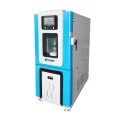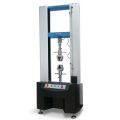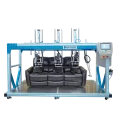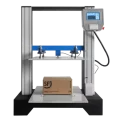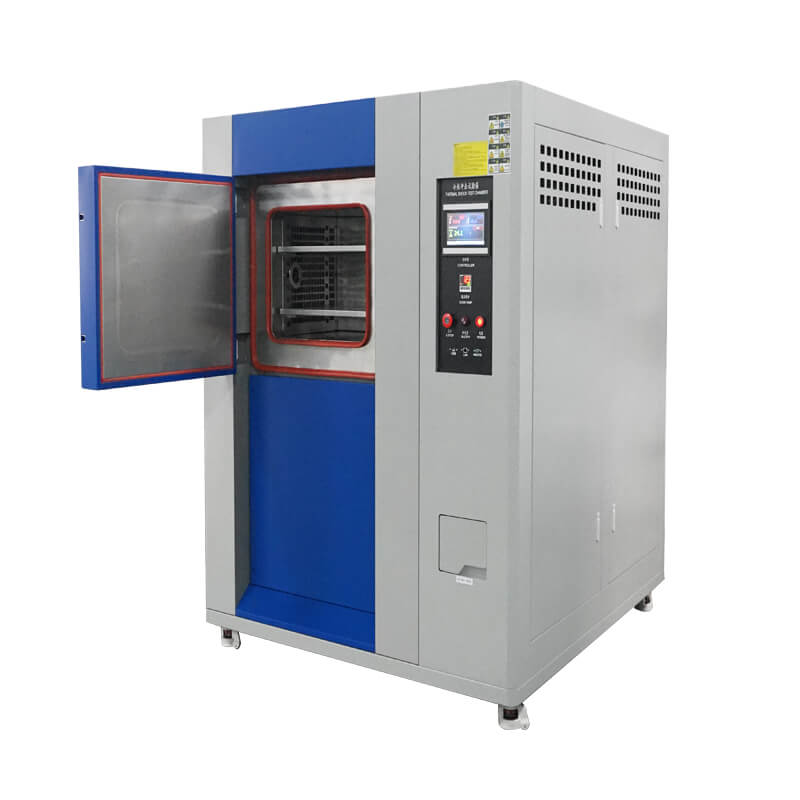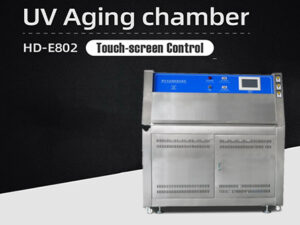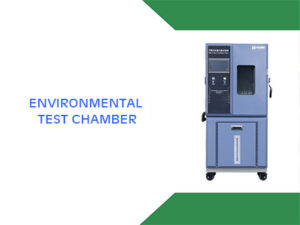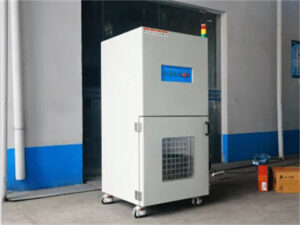Understanding Thermal Shock Chamber:
A thermal shock chamber is designed to simulate extreme temperature shifts and evaluate the resistance and resilience of materials in response to abrupt temperature changes. By subjecting materials to alternating hot and cold environments, these chambers simulate real-world scenarios, helping manufacturers identify potential weaknesses, structural vulnerabilities, or material degradation.
Role of Thermal Shock Test Chambers in Various Industries:
1. Electronics and Telecommunications: Thermal shock testing is crucial in the electronics industry to assess components’ reliability under rapid temperature fluctuations. It aids in identifying potential issues such as solder joint failures, delamination, or cracked components, ensuring the longevity of electronic devices.
2. Automotive and Aerospace: In these safety-critical industries, where vehicles and aircraft encounter extreme temperature variations, thermal shock testing is imperative. Evaluating the durability of materials used for engines, electronic systems, or even cabin equipment is essential for maintaining performance, enhancing safety, and minimizing maintenance costs.
3. Pharmaceutical and Medical Devices: Thermal shock chambers play a crucial role in testing and ensuring the reliability of pharmaceutical packaging, medical devices, and equipment. These tests help manufacturers guarantee that products can withstand temperature fluctuations during storage, transportation, and usage, ensuring product integrity and patient safety.
Highlights of Thermal Shock Chamber Tests:
1. Material Strength Evaluation: Thermal shock tests assess the bearing extent of material structures and composite materials in an instant. By exposing materials to rapid temperature changes, potential weaknesses, such as cracks, delamination, or physical deformations, can be identified early on, leading to improved product quality.
2. Temperature Cycling: Thermal shock chambers allow for rapid temperature cycling, replicating extreme conditions and enabling manufacturers to identify materials’ and products’ limits. By subjecting the product to extreme temperatures, manufacturers gain insights into the potential failure modes and adjust design or manufacturing processes accordingly.
3. Efficiency and Accuracy: Thermal shock test chambers provide accurate and consistent results, ensuring reproducibility. Manufacturers can rely on these test chambers for reliable data, enabling them to make informed decisions regarding material selection, product design improvements, or quality assurance measures.


